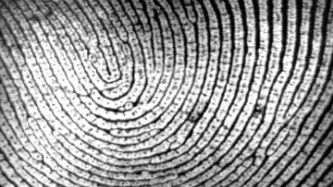Search
Content type: Examples
South Korea's second spike in coronavirus cases was curbed via a contact tracing regime that uses credit card records, mobile phone tracking, and GPS location data in order to track the previous movements of infected individuals working alongside efficient diagnostic testing. Successfully tracing an outbreak in Itaewon to a gay barhopper, however, led to reports of homophobic abuse targeted at the South Korean LGBTQIA community, and online criticism has led some who should be self-isolating to…
Content type: Examples
On the day South Korea relaxed its social distancing measures, a 29-year-old man tested positive for COVID-19. The previous weekend, he had visited five nightclubs in the gay district of Itweon in Seoul, mingling with around 7,200 other people. After nearly 80 new COVID-19 cases have been linked to that one man's outing, the mayor ordered all clubs and bars closed indefinitely, and led officials to push back reopening schools by a week. Soon aftewards, another infected man was found to have…
Content type: Examples
Authorities in South Korea, which had been successful in containing the coronavirus early on due to its aggressive testing programme, began trying to trace more than 5,500 people who visited a group of bars between April 2 and May 6 because a single infected customer led to a new outbreak. More than 3,000, some of them for fear of being stigmatised as gay, remained out of reach while the number of cases rose to 101. Gay people have little protection in South Korea, and the news of the…
Content type: Examples
On March 9, SK Telecom began providing South Korea's Gyeongbuk Provincial Police Agency with its Geovision population analysis service and GIRAF platform. The company claims that the combination can analyse mobile geolocation data across the country in real time, create visualisations, and show how many people are in 10x10 metre lattices, enabling police to send officers where they're needed to enforce distancing measures. The company is in talks with the Korean National Police Agency to expand…
Content type: Examples
Although the alerts about contacts with people infected by the coronavirus sent out via SMS by the South Korean government do not include names, the information included about people who tested positive for coronavirus, and their past locations can be revealingly detailed in some cases. Those who have been identified by this means have suffered offline and/or online harassment; others, without being specifically identified by name, have been mocked. A survey has found that as a result people…
Content type: Examples
The success of South Korea's efforts to combat the coronavirus without a national lockdown and without suspending civil rights depended in part on preparation put in place after the 2015 MERS epidemic and in part on the country's network of private testing labs, which enabled the country to quickly set up drive-in testing, with the results rapidly texted back to mobile phones. Positive results set in motion aggressive contact-tracing incorporating CCTV footage, mobile phone tracking data, and…
Content type: Examples
With 6,300 COVID-19 cases and more than 40 reported deaths, the South Korean government launched a smarphone app (Android first, iPhone due on March 20) to monitor citizens on lockdown as part of its "maximum" action to contain the outbreak. The app keeps patients in touch with care workers and uses GPS to keep track of their location to ensure they don't break quarantine. The government said the tracking was essential to manage the case load (at the time, 30,000 people) and prevent "…
Content type: Examples
The "safety guidance texts" sent by health authorities and district offices in South Korea are causing information overload and have included embarrassing revelations about infected people's private lives. A text may include, for example, a link to trace the movements of people who have recently been diagnosed with the virus. Clicking on the link takes the user to the website of a district office that lists the places the patient had visited before testing positive. In one case, a man in his…
Content type: News & Analysis
In 1994, in an attempt to discover the problems caused by ID cards, Privacy International compiled a survey containing reports from correspondents in forty countries. Amongst the gravest of problems reported to Privacy International was the over zealous use or misuse of ID cards by police - even where the cards were supposed to be voluntary. One respondent wrote:
On one occasion I was stopped in Switzerland when walking at night near Lake Geneva. I was living in Switzerland at the time and had…
